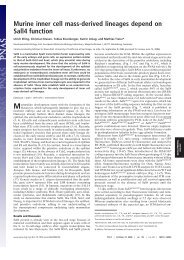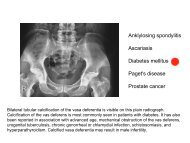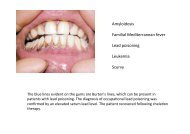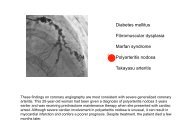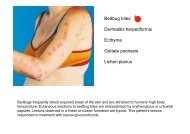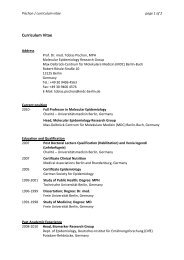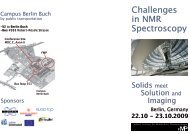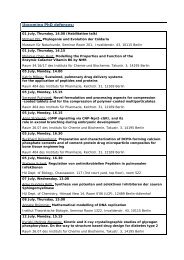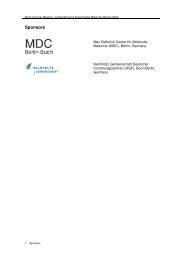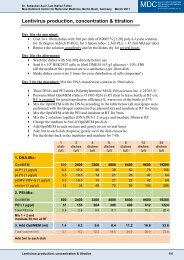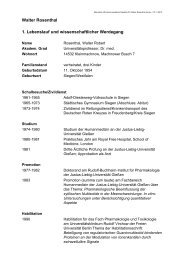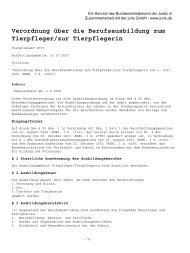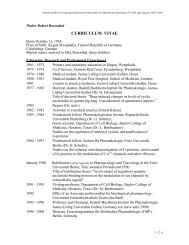Beckwith-Wiedemann syndrome Hypoglossal nerve injury ... - MDC
Beckwith-Wiedemann syndrome Hypoglossal nerve injury ... - MDC
Beckwith-Wiedemann syndrome Hypoglossal nerve injury ... - MDC
Create successful ePaper yourself
Turn your PDF publications into a flip-book with our unique Google optimized e-Paper software.
Magnesium for aneurysmal subarachnoid haemorrhage (MASH-2): a<br />
randomised placebo-controlled trial<br />
Magnesium sulphate is a neuroprotective agent that might improve outcome after aneurysmal<br />
subarachnoid haemorrhage by reducing the occurrence or improving the outcome of delayed<br />
cerebral ischaemia. We did a trial to test whether magnesium therapy improves outcome after<br />
aneurysmal subarachnoid haemorrhage. We did this phase 3 randomised, placebo-controlled<br />
trial in eight centres in Europe and South America. We randomly assigned (with computergenerated<br />
random numbers, with permuted blocks of four, stratified by centre) patients aged<br />
18 years or older with an aneurysmal pattern of subarachnoid haemorrhage on brain imaging<br />
who were admitted to hospital within 4 days of haemorrhage, to receive intravenous<br />
magnesium sulphate, 64 mmol/day, or placebo. We excluded patients with renal failure or<br />
bodyweight lower than 50 kg. Patients, treating physicians, and investigators assessing<br />
outcomes and analysing data were masked to the allocation. The primary outcome was poor<br />
outcome—defined as a score of 4—5 on the modified Rankin Scale—3 months after<br />
subarachnoid haemorrhage, or death. We analysed results by intention to treat. We also<br />
updated a previous meta-analysis of trials of magnesium treatment for aneurysmal<br />
subarachnoid haemorrhage.



